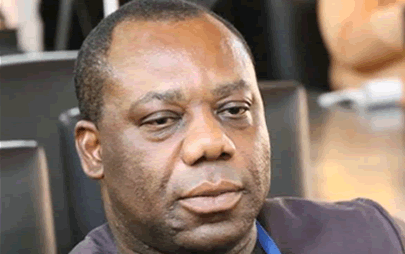Non-Formal Education transforms into Alternative Education Agency

Government is transforming the Non-Formal Education Division, under the Ministry of Education, into Alternative Education Agency to address the country’s 21st century literacy concerns.
The Agency will be responsible for implementing a national alternative education strategy to handle the educational needs of Ghanaians outside the formal education system to complement the Free Senior High School(SHS) programme.
This was in a speech read on behalf of Dr Mathew Opoku-Prempeh, the Minister of Education, to mark the 2018 International Literacy Day in Accra, on the theme: “Empowerment Through Literacy and Skills Development.”
The event was supported by Ecobank and Mondelez International.
The Minister said under the Alternative Education Framework, government would roll out a functional basic literacy programme equivalent to primary three, targeting youth and adult non-literates, school drop-outs and neo-literates.
“The framework will have an occupational skills development programme for jobless adults, where target groups would have the opportunity to acquire a Diploma Certificate in Entrepreneurship, and a complementary basic education focusing on out-of-school children between six and 14 years,” he added.
Dr Opoku-Prempeh added that the framework would include remedial classes for junior and senior high school graduates unsuccessful in their respective examinations, offering them opportunity to re-sit and continue with their educational aspirations.
He said the framework would encapsulate Ghana General Education Diploma for mature entrants of universities, where the Agency would collaborate with the West African Examinations Council and the Universities to conduct a standardized diploma certificate to be accepted for entry to all the universities.
He said UNESCO records showed that 260 million children and adolescents world-wide are not in school, 617 million children do not have the minimum skills in literacy and numeracy while 750 million young people and adults cannot read and write.
Dr Opoku-Prempeh said it was imperative to revitalise functional literacy and alternative education to deliver the thousands of people around the world who lagged behind due to illiteracy.
The Minister said it was prudent to align literacy to the prevailing lifetime needs of non-literates, semi-literates and the functional literate in a particular location to close the literacy gap and increase learners’ ability to contribute effectively in the globalised world.
Mr Francis Asumadu, the Acting Director of Non-Formal Education Division, Ministry of Education, said there were 45,800 learners in 1,832 classes in the English programme, with 19,750 learners in 790 classes for the local languages.
He called for collective efforts in programme design and implementation to seek a perfect tailoring of literacy and skills development to create knowledge and competencies in industry and career development.
Mr Asumadu said the Division would continue to execute its mandate of offering quality functional literacy and skills development services to the Ghanaian youth and adults in 15 Ghanaian Languages and in English.
Dr Edward Botchwey, the Acting Managing Director, Ecobank Ghana, said the Bank recognised the importance of non-formal education because of its contribution to ensuring equal access to education and eradicating illiteracy among adults.
He said Ecobank had invested 1.8 million cedis on various activities in the country including education and would continue to support non-formal programmes for quality teaching and learning.
“Ecobank is an advocate for quality education because non-formal education establishes strategies that are easily compatible with reality. Our partnership is to enrich the educational content in the area of financial literacy,” he said.
Source: GNA
